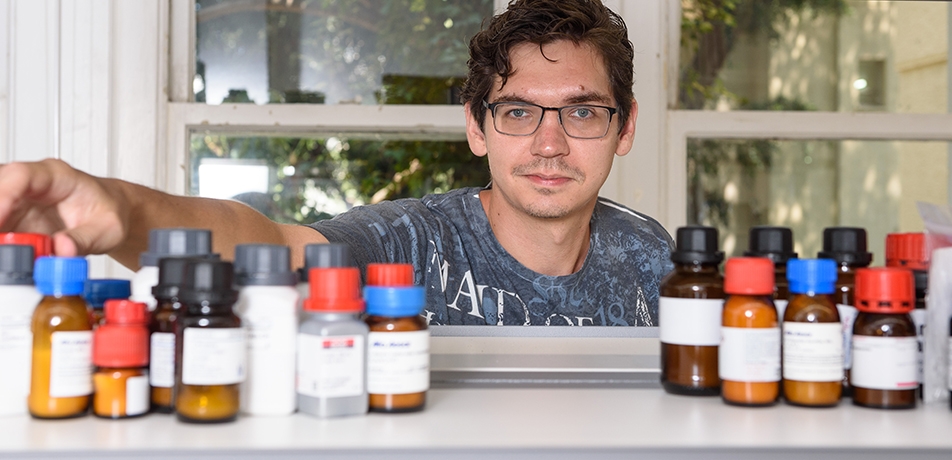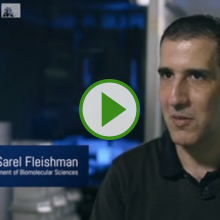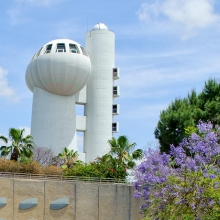Dr. Sergey Semenov wins Clore Prize
Weizmann chemist explores the emergence of life from its organic roots
New scientists

Dr. Sergey Semenov
This year’s winner of the Sir Charles Clore Prize, awarded annually to a newly hired Weizmann scientist who shows great promise in his or her chosen field, is Dr. Sergey Semenov of the Department of Organic Chemistry. Dr. Semenov’s groundbreaking research sheds new light on understanding the emergence of life from its organic roots.
Dame Vivien Clore Duffield, a long-time supporter of the Weizmann Institute of Science, will present the award to Dr. Semenov on November 5 as part of a special luncheon during the 70th Annual General Meeting of the International Board.
Dr. Semenov joined the Institute this year, following postdoctoral fellowships at Harvard University and Radboud University Nijmegen in the Netherlands. He earned an MSc in chemistry with honors at Moscow State University in 2006, and PhD in chemistry with honors at the University of Zurich in 2010. One of his primary interests is exploring the phenomenon known as autocatalysis—how a chemical reaction can begin and be sustained on its own.
How does autocatalysis work?
A hallmark of life is its ability to self-replicate at every level, from individual molecules to whole organisms. Our skin and blood and hair cells—not to mention our DNA—are constantly renewing themselves. However, what appears simple to a living cell or bacteria is nearly impossible to reproduce in a lab using only chemicals and organic (but not living) compounds.
This leads scientists to ponder how life first formed, and to take on the challenge of creating the first self-replicating molecules. Organic chemists like Dr. Semenov see living systems as an interconnected network of chemical reactions. Life depends on the ability to self-sustain these reactions, a process called autocatalysis. Dr. Semenov’s studies in autocatalysis and biological networks provide new insights to understand the organic beginnings of life.
To better grasp how an autocatalytic process works, Dr. Semenov and colleagues helped create the first experimental example of a simplified, autocatalytic network that could regulate itself and respond to changes in its environment. This network could not only produce and replenish its own supply of catalysts, but also respond to changes in conditions, such as the shortage or excess of raw materials, by slowing down or speeding up the production of the end products.
Chemistry is key
Self-regulating systems like the one Dr. Semenov and his colleagues created offer scientists a chance to experiment with the chemical compositions that could make self-replication more probable. Moreover, his work can bolster efforts to describe the basic mechanisms of self-replication, on the molecular level. In his new lab, Dr. Semenov plans to create ever more complex chemical reaction networks.
Although such an artificial network is still a long way from producing life in a test tube, Dr. Semenov believes it may lead to a better understanding of the factors that led to the formation of life on Earth. The chemistry of autocatalysis is key. Creating and fine-tuning artificial autocatalytic systems that can react appropriately to changing environmental conditions are also a basic building block needed to create advanced and intelligent materials that can respond to their surroundings.
Dr. Sergey Semenov is supported by the Benoziyo Endowment Fund for the Advancement of Science, the Sir Charles Clore Prize, the Ilse Katz Institute for Material Sciences and Magnetic Resonance Research, and the Irving and Azelle Waltcher Endowed Research Fund in honor of Professor Moshe Levy.








